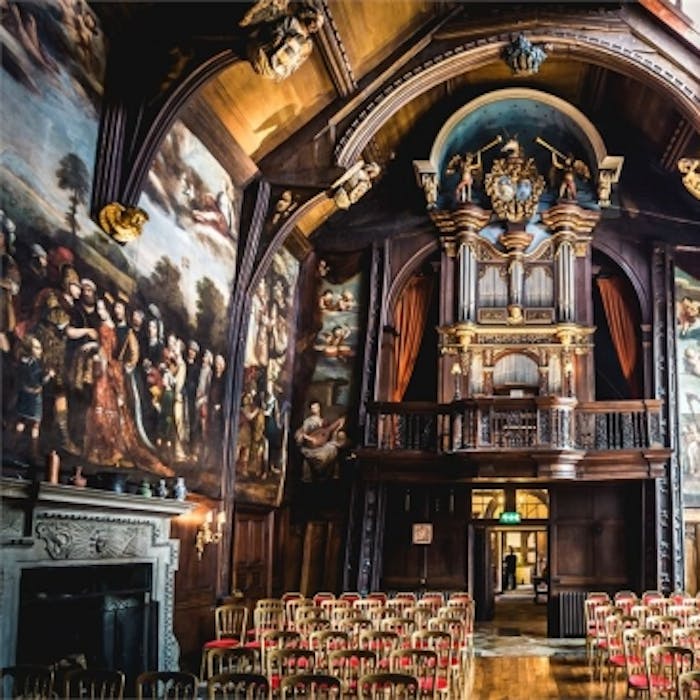
Britain's oldest organ - at the magnificent Adlington Hall
Adlington Hall in Cheshire started life as a Saxon hunting lodge, and in the 14th century, it came into the Legh family who still own the hall today, and have added further impressive elements to the building over the following centuries. One of its most notable features is the oldest surving British pipe organ.
The Magnificent Great Hall was built by Thomas Legh and completed in 1505. It incorporates two carved oak trees still rooted in the ground, which were part of the original hunting lodge. Today they support the gallery which houses the oldest unaltered pipe organ of its size in the British Isles.
The organ dates from the latter part of the 17th century, however, is exact dates and maker are unknown. The style of organ building has led to the suggestion of the organ, maybe being the work of celebrated organ maker Bernard 'Father' Smith, who came to England after the restoration and became the country's leading organ builder.
The significance of the Adlington Hall organ is underlined by the fact that the composer George Frideric Handel was well acquainted with the Legh family, and would have played the instrument himself around 1741. He also composed the music for a hunting song, the words of which had been written by Charles Legh. There is a tradition that Handel composed The Harmonious Blacksmith at the hall.
The organ fell into disrepair and was unplayable for over 100 years until it was painstakingly restored by Noel Mander in 1959. It contains almost all of its original pipes and mechanism including three examples of 17th-century reed stops, trumpet and bassoon stops and provides a unique opportunity to hear the music of this period on an original instrument in amazing surroundings.
The organ has a very fine Renaissance case, in two tiers. The upper tier consists of five panels containing pipes, which are flanked by Corinthian pilasters. Over the top is a large curved hood containing gilded statues of putti playing trumpets, and a coat of arms celebrating the marriage of John Legh to Isabella Robartes in 1693. It is regarded as England's most important surviving instrument from the late 17th century, and awarded a Historic Organ Certificate.
Adlington Hall is still in private ownership, but it and the gardens are open for visits, and both the organ and the property itself, which is Grade I listed, are remarkable examples of Britain's heritage.
Further reading
Links to external websites are not maintained by Bite Sized Britain. They are provided to give users access to additional information. Bite Sized Britain is not responsible for the content of these external websites.
